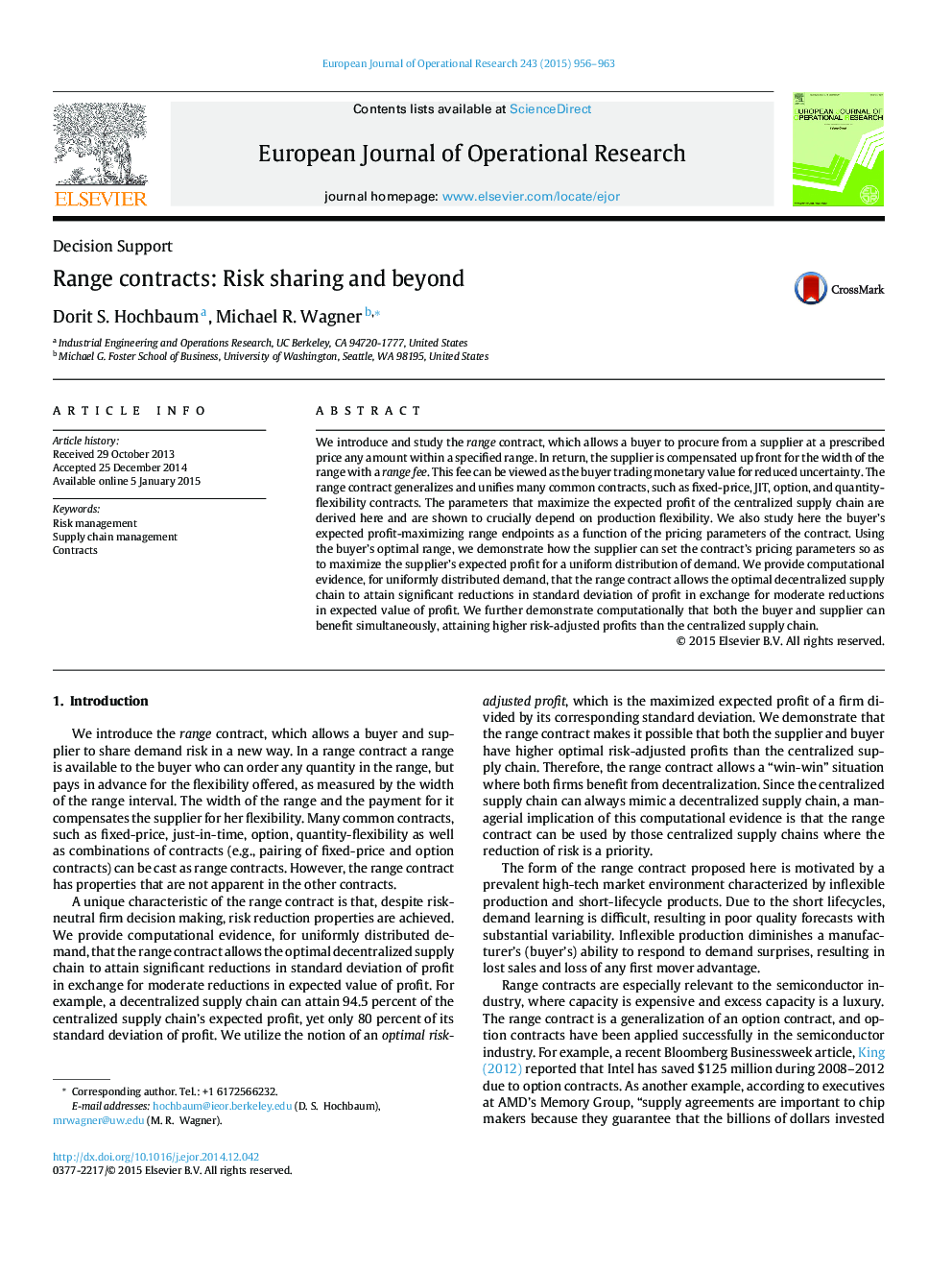| Article ID | Journal | Published Year | Pages | File Type |
|---|---|---|---|---|
| 478063 | European Journal of Operational Research | 2015 | 8 Pages |
•We introduce the “range contract”, which generalizes many common contracts.•We derive the parameters that maximize a buyer and supplier’s expected profits.•The buyer and supplier both benefit via higher risk-adjusted profits.
We introduce and study the range contract, which allows a buyer to procure from a supplier at a prescribed price any amount within a specified range. In return, the supplier is compensated up front for the width of the range with a range fee. This fee can be viewed as the buyer trading monetary value for reduced uncertainty. The range contract generalizes and unifies many common contracts, such as fixed-price, JIT, option, and quantity-flexibility contracts. The parameters that maximize the expected profit of the centralized supply chain are derived here and are shown to crucially depend on production flexibility. We also study here the buyer’s expected profit-maximizing range endpoints as a function of the pricing parameters of the contract. Using the buyer’s optimal range, we demonstrate how the supplier can set the contract’s pricing parameters so as to maximize the supplier’s expected profit for a uniform distribution of demand. We provide computational evidence, for uniformly distributed demand, that the range contract allows the optimal decentralized supply chain to attain significant reductions in standard deviation of profit in exchange for moderate reductions in expected value of profit. We further demonstrate computationally that both the buyer and supplier can benefit simultaneously, attaining higher risk-adjusted profits than the centralized supply chain.
